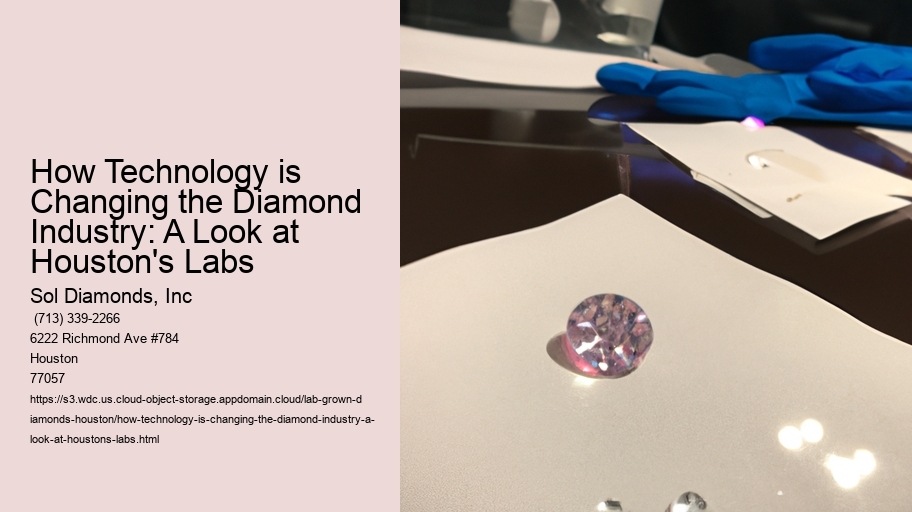The diamond industry has been a traditional one for centuries, with its value and allure derived from the rare and precious nature of these gems. The Market for Lab Grown Diamonds in Houston . However, in recent years, technology has begun to have a significant impact on this industry, changing the way diamonds are sourced, processed, and purchased. In particular, the city of Houston has emerged as a hotspot for these technological advancements, with labs playing a crucial role in the transformation of the diamond industry.
At the heart of this technological revolution is the growth of lab-grown diamonds. Traditionally, diamonds are mined from the earth, a process that is not only time-consuming and labor-intensive but also fraught with ethical and environmental concerns. However, scientists in Houston's labs have perfected the technique of growing diamonds in a controlled environment. This process, known as Chemical Vapor Deposition (CVD), involves placing a small 'seed' diamond in a chamber filled with carbon-rich gas. The carbon atoms attach themselves to the seed, slowly growing it into a larger diamond. This process can produce diamonds that are virtually indistinguishable from their mined counterparts, both in terms of physical properties and appearance.
The rise of lab-grown diamonds has the potential to revolutionize the diamond industry. On one hand, it offers a more ethical and sustainable alternative to mined diamonds. On the other hand, it can potentially lower the cost of diamonds, making them more accessible to a wider range of consumers. Moreover, lab-grown diamonds can be produced more quickly and efficiently than mined diamonds, disrupting the traditional supply chain.
Another significant technological advancement in the diamond industry is the use of blockchain technology. Blockchain, the technology behind cryptocurrencies like Bitcoin, is a decentralized digital ledger that records transactions across many computers. Houston's labs are exploring the use of blockchain to track the journey of a diamond from the mine (or lab) to the consumer. This could help alleviate concerns about 'blood diamonds' or conflict diamonds, which are mined in war zones and sold to finance armed conflict. By providing a transparent and tamper-proof record of a diamond's history, blockchain technology could help ensure that every diamond on the market is ethically sourced.
Finally, technology is also changing the way consumers purchase diamonds. Online platforms are providing consumers with more information and options than ever before, allowing them to customize their diamond jewelry and make more informed decisions. Some companies are even using augmented reality (AR) technology to allow consumers to 'try on' jewelry virtually before making a purchase.
In conclusion, technology is playing a pivotal role in transforming the diamond industry. From the growth of lab-grown diamonds to the use of blockchain technology and online platforms, these advancements are making the diamond industry more ethical, sustainable, and consumer-friendly. As labs in Houston continue to push the boundaries of what is possible, it is clear that the future of the diamond industry will be shaped by technology.
